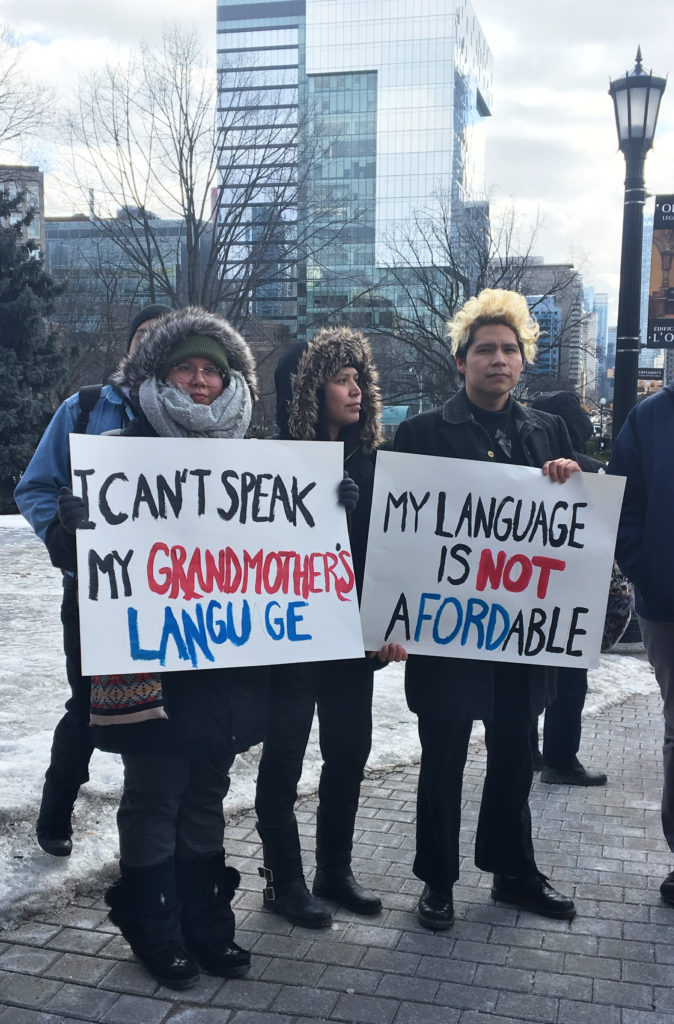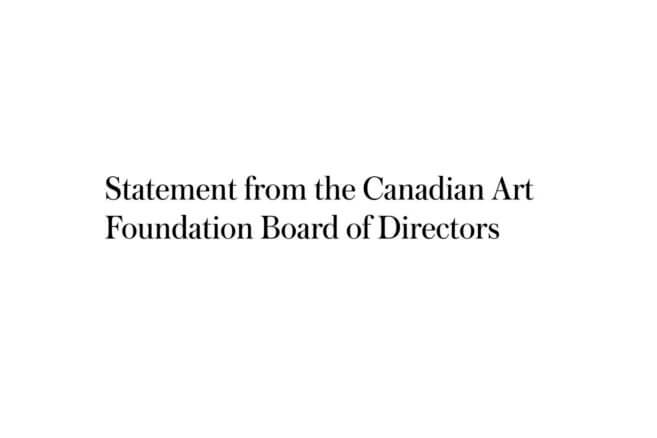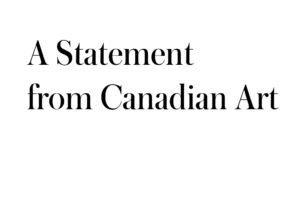“My Kookum’s Language Was Taken. I Want it Back!” “Uphold UNDRIP Article 13.” “We Need the 2018 Indigenous Curriculum.”
These were just some of the signs waved outside the Ontario Legislature this week during a rally against cuts to the Indigenous Culture Fund.
The fund, created by a previous Liberal provincial government in 2017 in response to the recommendations of the Truth and Reconciliation Commission (TRC), had a wide scope. Its range went beyond Eurocentric concepts of arts and culture, instead nurturing support for language learning, traditional harvesting, youth-elder connecting and more.
“I have spent about 25 years in Canada’s cultural sector, and when I saw the launch of the Indigenous Culture Fund, to me this was one of the most exciting things that I’d seen in all those 25 years,” said Jesse Wente, director of the Indigenous Screen Office, at the rally this week. “The opportunity for cultures to be reborn, to be restored and revitalized within their own communities, driven by their own communities—this is exactly what the TRC called for in its 94 recommendations and calls to action. This was exactly the sort of action colonial governments should do in response to the TRC.”
In December 2018, though, it came to light that the current Conservative provincial government had slashed the fund nearly in half, from $5 million to $2.75 million, and put it under review.
“This fund has only been around one year, not long enough to assess the effectiveness, to understand what could come out of a fund like this,” Wente pointed out.

 People at a rally to support reinstatement of the Indigenous Culture Fund at Queen's Park in Toronto on February 25, 2019.
People at a rally to support reinstatement of the Indigenous Culture Fund at Queen's Park in Toronto on February 25, 2019.




